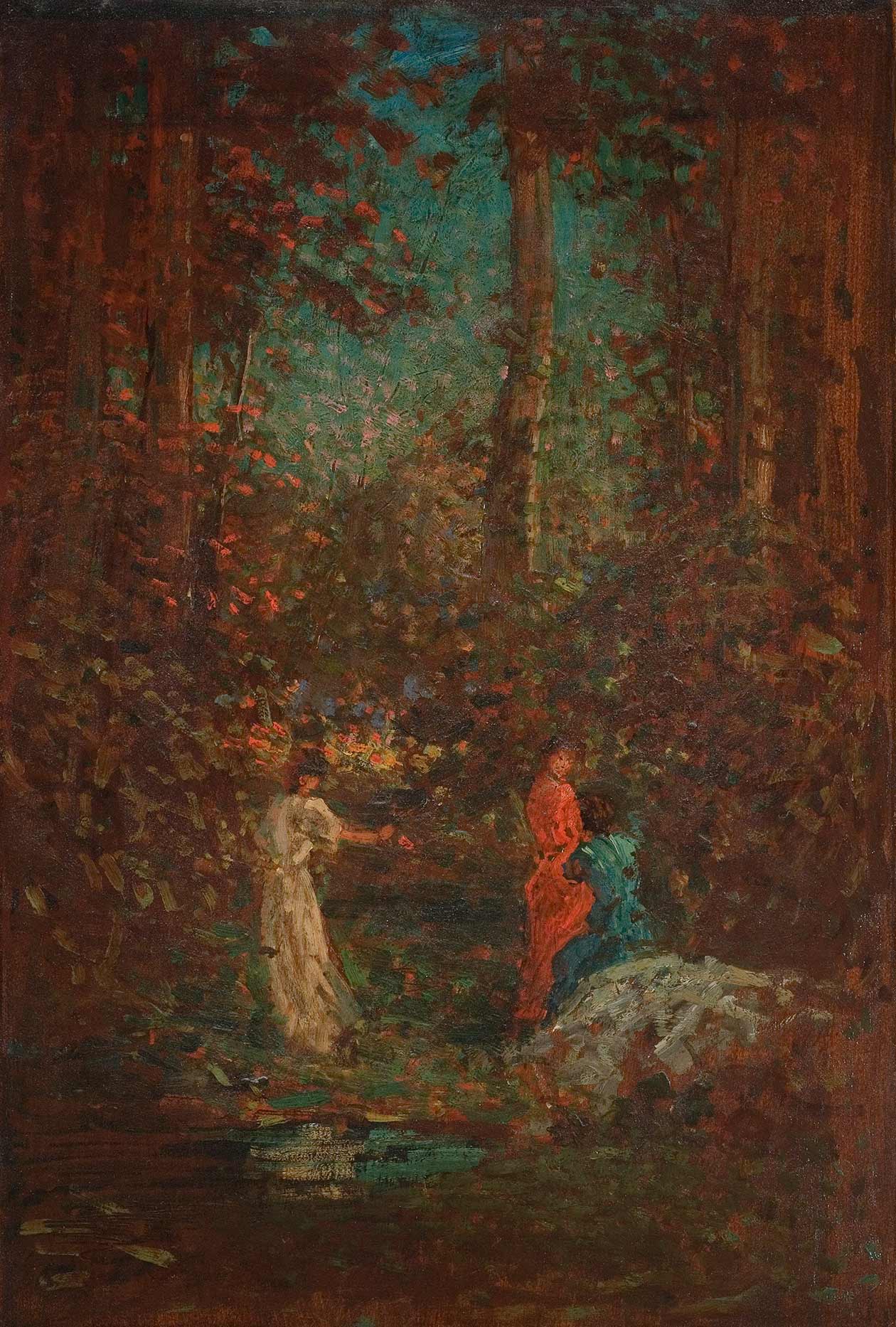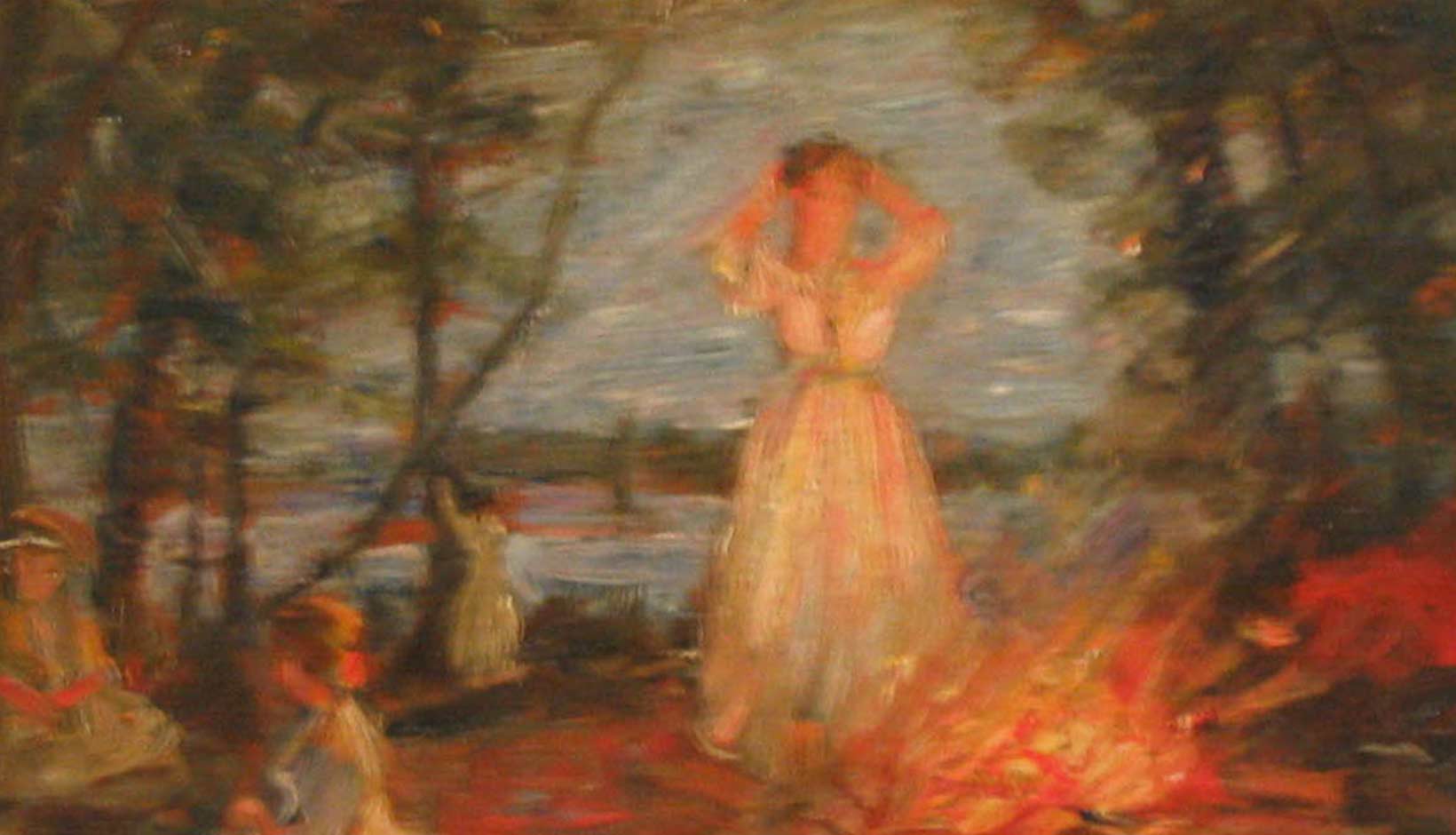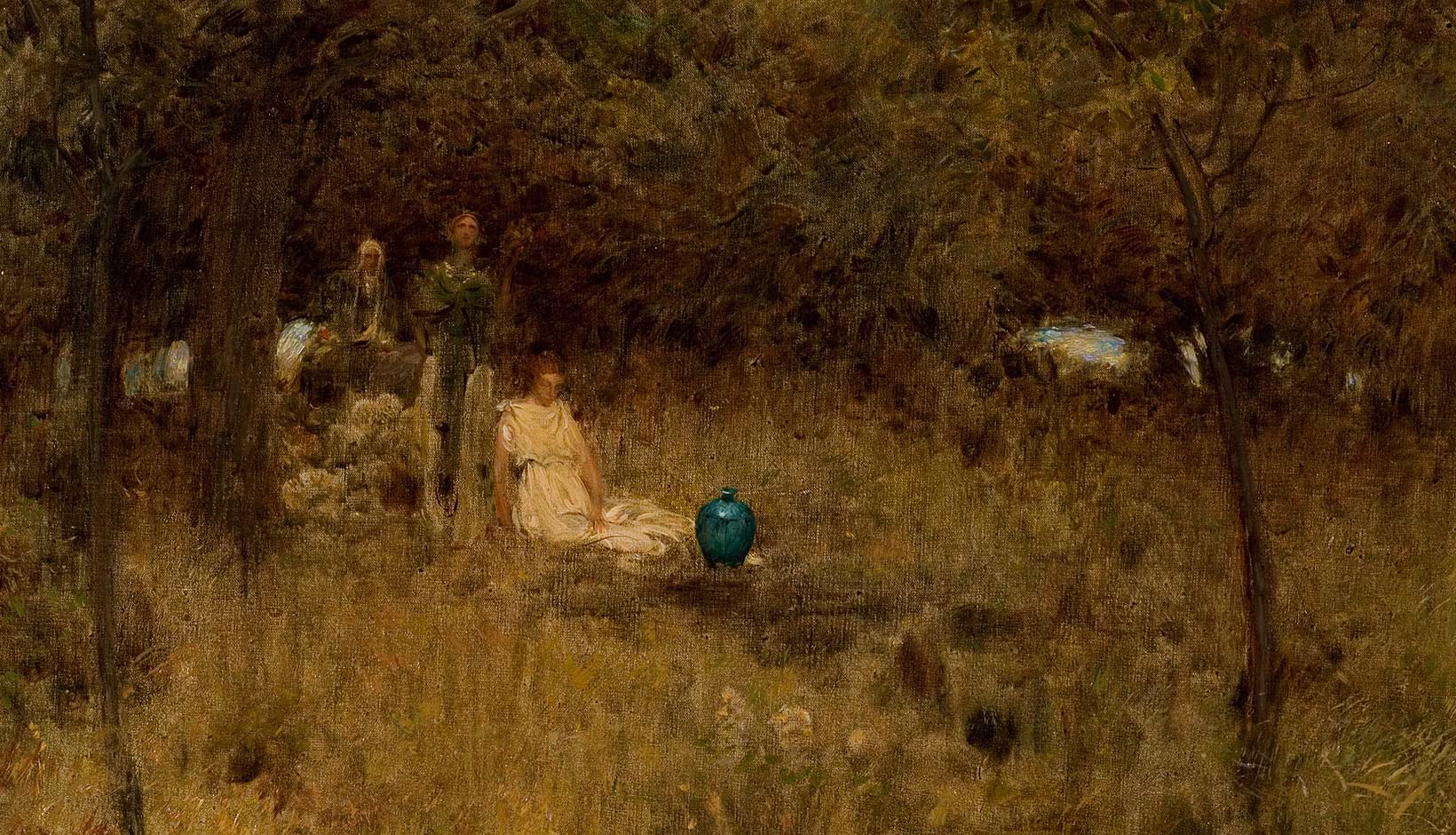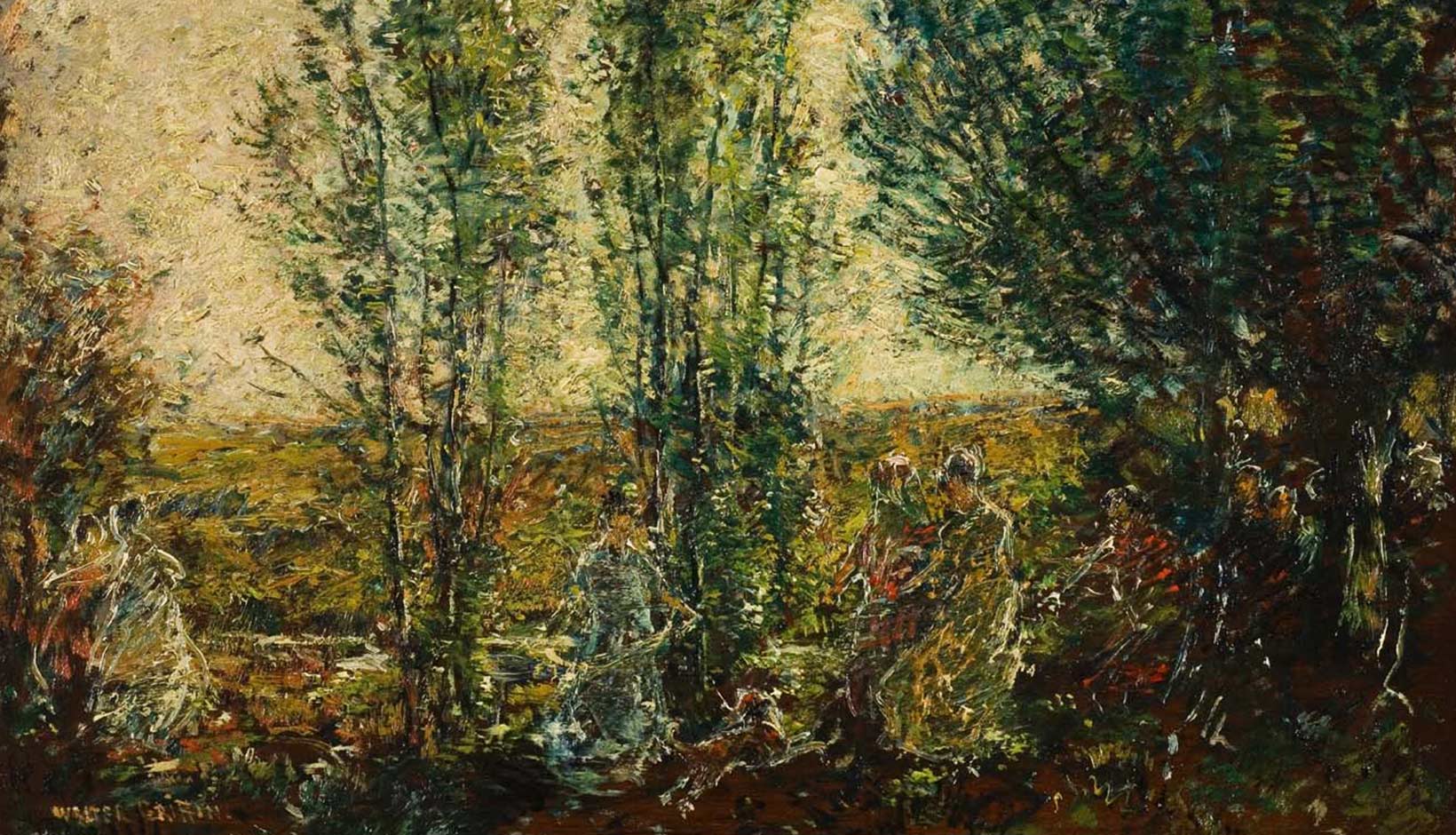Collections
In Situ: The Painted Panels
- The Museum will be closed Sunday, April 9 in observance of Easter.
Robert Nisbet (1879 – 1961)
Three Young Women in a Wood
Judging by the two panels he did for the dining room (Venetian Fancy and this one), Robert Nisbet was in a romantic mood at Old Lyme, and, indeed, he was then romancing, as he should not have been, the young wife of his teacher Willard Metcalf. The two eloped in July 1907. Nisbet had studied in Old Lyme with Frank DuMond in 1903, then returned in 1905 as a private student of Metcalf, who was new to Old Lyme that year but had been his instructor in Providence, Rhode Island, the previous fall. Nisbet was at the Griswold House again in 1906 and 1907. Students were not usually welcome there, but Nisbet was seen as remarkably gifted and was soon considered a fellow professional. That he was asked to do not one but two panels for the dining room is evidence of his acceptance. Of course, he did not return to Old Lyme after running off with Metcalf’s wife.
ROBERT H. NISBET (1879-1961)
THREE YOUNG WOMEN IN A WOOD
OIL ON WOOD PANEL
GIFT OF THE ARTIST
The polymathic artist settles in Kent.
A Mythical Depiction of Women in the 19th Century
That women and nature – the peaceful pleasant face of nature – are profoundly connected is a very old idea in Western thought, which came to the fore again in late 19th-century America. It was a time when wives kept home and family together while men went off each day to deal with business, technology, and other challenges of the industrial age. As a result, artists portrayed women in gardens, meadows, and woodlands, clad in flowing Goddess-like gowns or, like the nymphs of classical myth, without any clothes at all. Here the three ladies, two standing and one seated on a large boulder, dressed in gowns of white, blue, and red appear to be enjoying a conversation in this richly textured woodland. A prismatic blue twilight sky flecked with purple shimmers through the trees and is reflected in a small pool beside the rock. What these women might be saying is anybody’s guess. This is an other-worldly, midsummer night’s dream sort of scene, even though Nisbet may have had Old Lyme and some of the artists’ wives he met there in mind.




